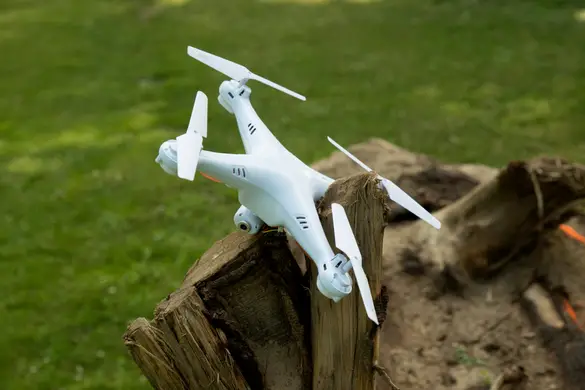
There are many insurance for drones policies that provide complete coverage. Drones are becoming increasingly popular, with the FAA reporting 1.7 million registered US drones in December 2020. Many of these owners and operators choose to purchase insurance for their drones due to the limitations of their homeowner’s policies regarding drones. While homeowner’s policies often cover drone damages occurring on their own property, they do not cover commercial drone usage. As a commercial drone operator, you should purchase specialized drone insurance to cover property damage, bodily injuries, and physical damage to your drone. Additionally, you’ll save money by protecting yourself from litigation. Moreover, many of the top drone business ideas profit from insurance coverage. Read on to discover several types of insurance for drones that provide complete coverage.
Basic Liability Coverage
Liability coverage is one of the most common drone policies, protecting you from third party claims of damage or injury. For example, this policy will protect you in the event of crashing your drone into a car or building and causing damage. It will also protect you if you crash into someone, causing bodily harm. The specifics of liability coverage depends on your provider. Therefore, read the policy carefully to fully understand what is covered. Additionally, liability limits and deductibles have a significant impact on the jobs you can undertake with your drone. For instance, most large film production companies require hired drone operators to have liability limits of at least $5 million. Surely, liability coverage protects your investments from many common incidents.
Hull Coverage
Hull coverage insures damages to your drone itself. Many commercial operators tend to skip hull coverage because of the separate policy and cost of drone replacement. If you’ve spent significant amounts of money on your drone, hull coverage should be a high priority to reduce the costs of replacing it. Consider these costs when determining the overall premium of hull coverage. Often, high premiums and deductibles make more financially sense to simply buy a new drone. Absolutely, consider a hull coverage policy if you’ve spent a significant amount of capital on your drone.
Payload Coverage
Payload coverage insures damages to your drone’s carried items and gear. The typical drone payload includes items such as professional cinematography cameras, thermal sensors, and LIDAR lasers. Additionally, many construction businesses using drone technology require expensive payloads. If your drone has any of these equipment, they are often the most expensive part of the drone. When damaged, equipment like this often costs tens of thousands of dollars, and liability or hull insurance do not cover these costs. When working out policies with your insurance broker, communicate specifics so there’s a distinction between coverage for your payload and the drone itself. Certainly, payload coverage protects the most important and expensive parts of your drone.
Theft Coverage
Theft coverage policies protect you if your drone gets stolen. Since drones are expensive, with most being over $1,000, they are often a prime target for thieves. If your business is based around the use of your drone, a theft incident typically leads to business downtime and lost revenue. Theft coverage can mitigate these costs, and get you a replacement drone quickly so you can get your business running again. However, there may be a high deductible to replace the entire drone. Definitely, speak with the drone insurance provider about theft coverage and deductible costs to protect your business.
Medical Payment Coverage
Medical payment coverage protects your business against injury claims arising from drone accidents. In the unfortunate event of injuring someone with your drone, you could be found liable medical bills and compensation. If that’s the case, you’ll often be required to pay medical expenses that range from thousands to tens of thousands of dollars. Medical payment coverage saves you these costs, allowing you to continue operating. Of course, medical payment coverage provides significant cost reductions and keeps your business operating despite unfortunate events.
There is a myriad of insurance for drones that offer complete coverage. One type, liability insurance, protects your drone investments from many of the most common incidents and accidents. Hull insurance protects the drone itself, but is only feasible for higher-quality, more expensive drones. Payload insurance protects the delicate, expensive equipment your drone may carry, such as cinematography cameras and laser sensors. Additionally, theft coverage reduces business downtime and revenue loss should your drone ever be stolen. Finally, medical payment coverage provides significant cost reductions and allows your business to continue operating in the event of hitting someone. If you run your own drone business, consider self employed dental insurance plans to maintain your oral hygiene, as well. When wondering about the best insurance for drones policy types for complete coverage, consider the policies described above.
 Business First Family Business, Accounting, Finance, Investing, Marketing And Management
Business First Family Business, Accounting, Finance, Investing, Marketing And Management